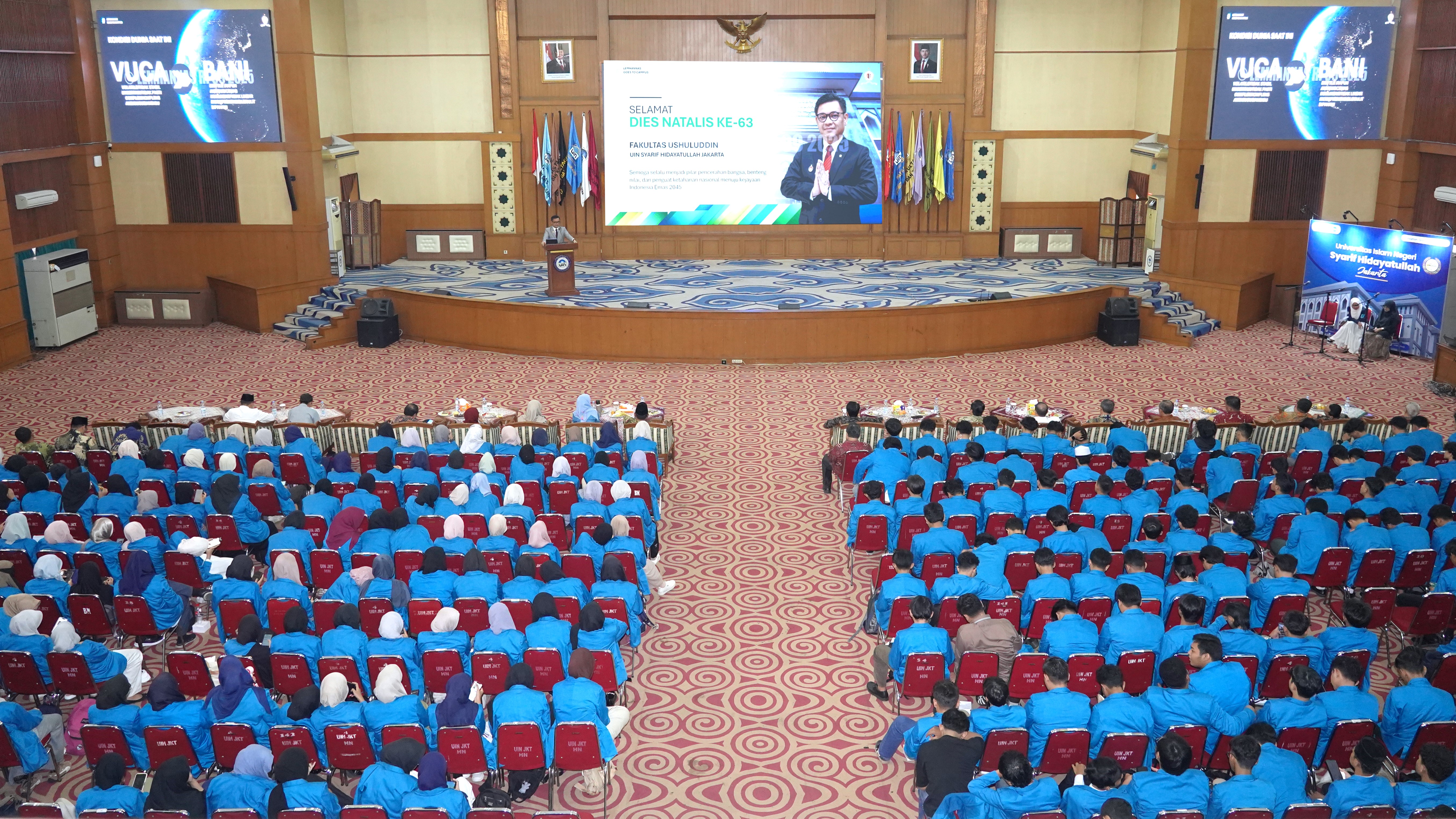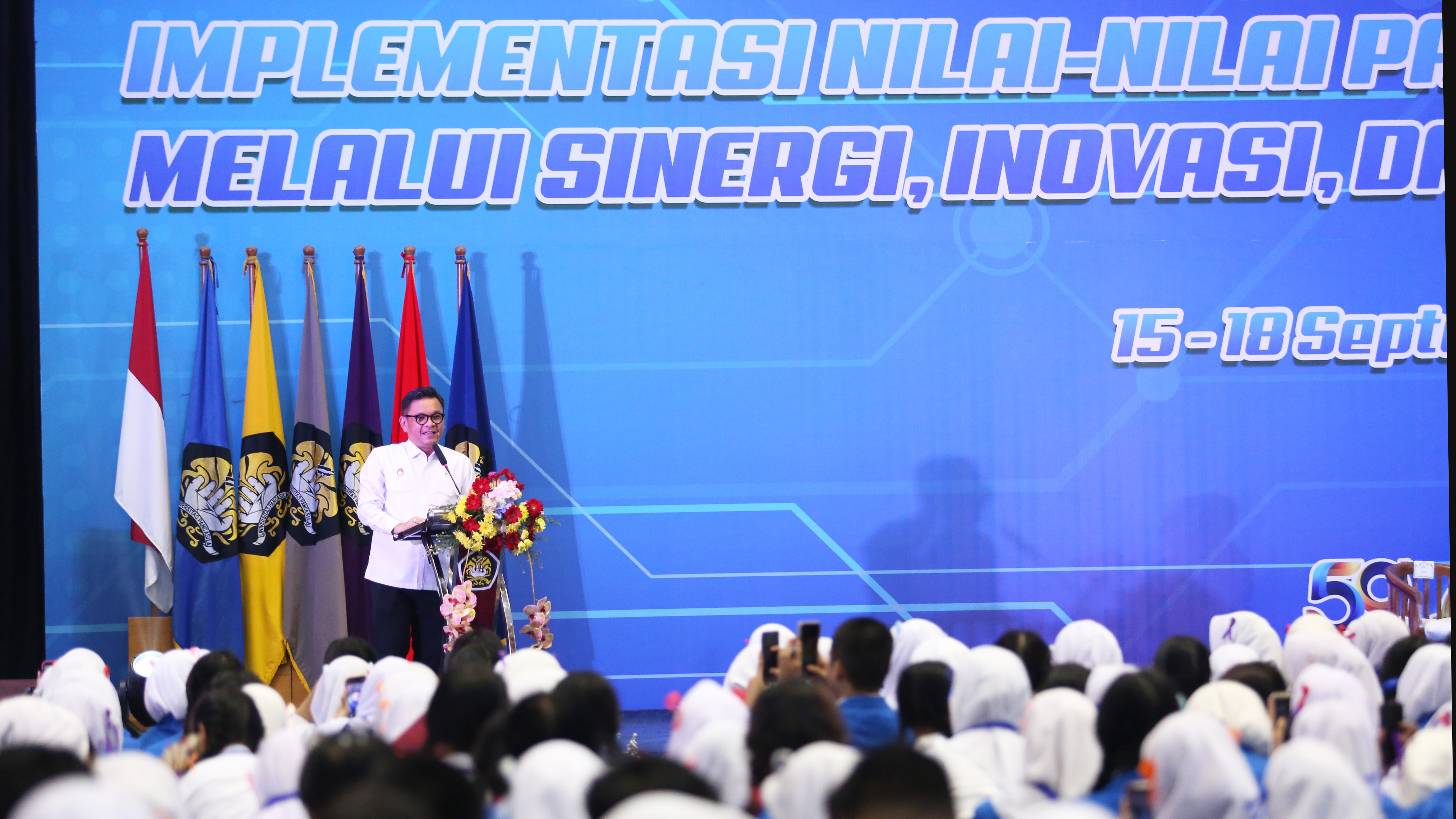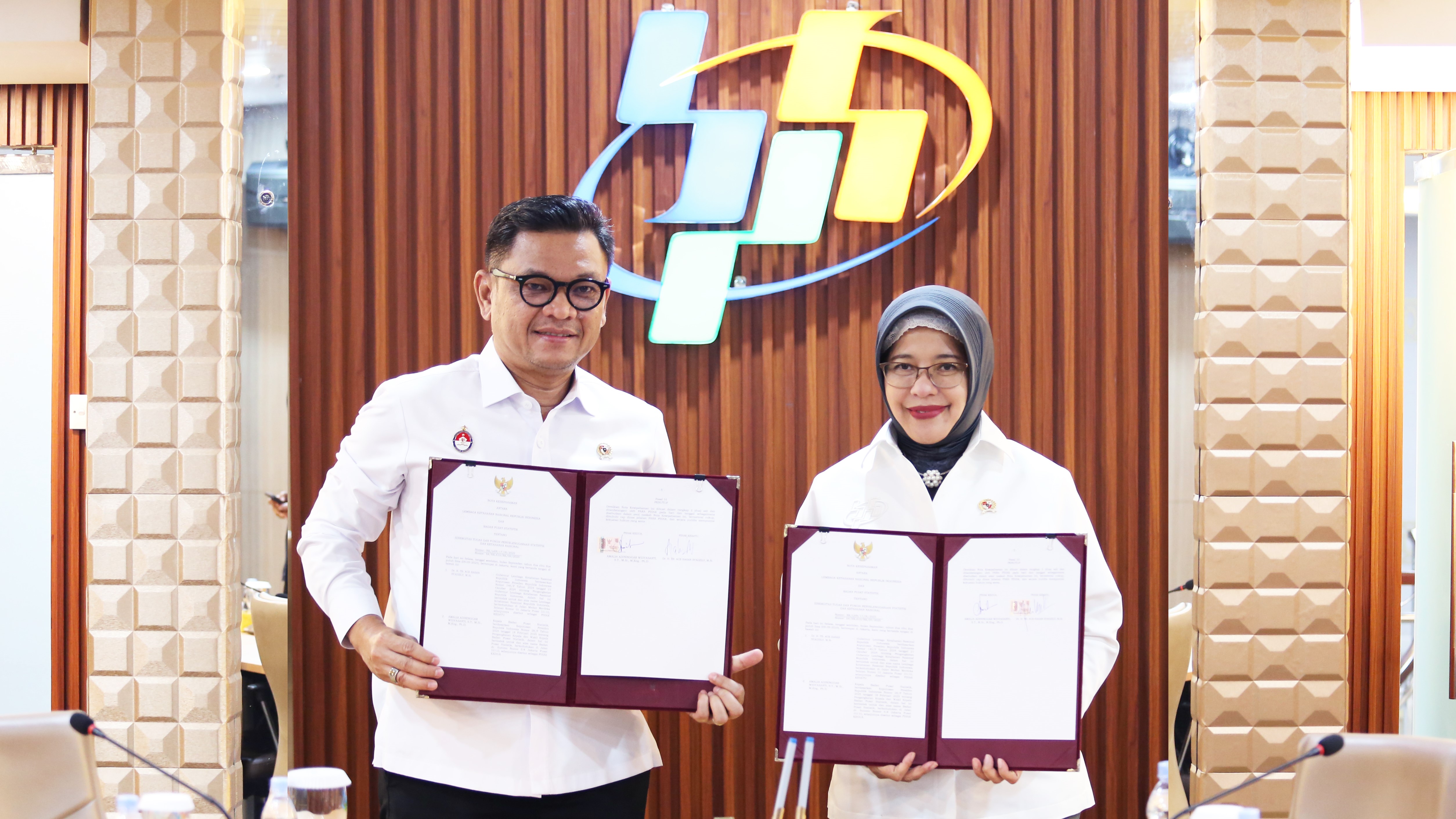Governor of Lemhannas RI: Religious Studies to Solidify the Foundations of National Resilience
News & Article Wednesday, 08 October 2025, 12:00
The Governor of Lemhannas RI, Dr. H. TB. Ace Hasan Syadzily, M.Si., delivered a lecture to improve the quality of the Ushuluddin Faculty at UIN Syarif Hidayatullah as part of the faculty's 63rd anniversary celebrations on Wednesday (8/10), in the Harun Nasution Auditorium. The event's theme was “The Role of Religious Studies in National Security”.
In his opening remarks, the Governor of Lemhannas RI emphasized the significant role of religion in human life. "People are religious because they have clear goals, seek meaning and purpose in life, want to get closer to God, and because religion is a moral and ethical guide," he remarked.
The Governor of Lemhannas RI explained the goals and advantages of religious studies. These include understanding religious diversity, increasing tolerance, examining the impact of religion, developing religious science, applying religious ethics based on humanitarian values and principles of piety, spreading grace based on religious and Indonesian values, and offering valuable insights into religion's role in modern society and its interaction with contemporary issues. He also mentioned the functions of religion, including providing a value orientation and behavioral guidelines for building the nation's civilization, strengthening the nation's religious identity, as stated in the first principle of Pancasila, and fostering social cohesion and national solidarity in facing national challenges.
Furthermore, the Governor said that the state guarantees human needs. This concept is emphasized in the Qur'an Surah Quraish verses 3-4, which state that the state's duty is to build a civilization and ensure a prosperous, worry-free society.
The Governor of Lemhannas RI emphasized that the Founding Fathers agreed upon four basic national consensus points, which include the principles of Pancasila, the 1945 Constitution of the Republic of Indonesia, the Unitary State of the Republic of Indonesia, and Bhinneka Tunggal Ika. These four principles form the foundation of Indonesian society and guide how its people live as a nation. With these four fundamental principles, Indonesia hopes to become a strong nation that respects and honors religious, ethnic, and racial diversity.
The governor also said that Lemhannas RI emphasizes the importance of geopolitical awareness. He reminded all attendees to be grateful for being part of a country with tremendous natural wealth. However, despite this wealth, the Indonesian nation faces many challenges, including a declining national spirit, vulnerable social cohesion, political influence, societal polarization, egocentrism, and social inequality.
Moreover, the world today is facing uncertainty. This is evident in the competition between major powers, trade wars, and conflicts such as the Russia-Ukraine war, the Israel-Palestine war, and the Israel-Iran conflict. Additionally, there are regional conflicts and cultural disruptions. Strong national resilience is required to face these challenges. National resilience is not only based on defense, but also on building a sense of national identity.
Furthermore, the governor stated that religion plays a fundamental role in building national unity. "Religious studies must be directed toward building a national civilization with strong moral convictions in the face of national challenges," the governor said.
In a time of globalization marked by disruption, Indonesia requires strong human resources and statesmen who are grounded in moral and spiritual values to strengthen its position in the international arena. Therefore, religion must be positioned as a strategic force to build national awareness, strengthen the four basic consensuses, reinforce the archipelagic concept, and increase awareness of the various threats to the nation.
In closing his lecture, the Governor of Lemhannas RI highlighted three ways religious studies can foster nationalism. First, religious studies raise awareness that spirituality can be an integrative force, preventing social fragmentation and maintaining national cohesion. Second, religious studies provide a stronghold for nationalism, giving rise to interpretations that soothe and enlighten, thereby strengthening the nation. Third, religious studies teach the importance of unity in diversity.
The Governor of Lemhannas RI also said that religion must be interpreted wisely to become a tool for building national unity. "I hope religious studies deepen faith and strengthen the foundations of national resilience, contributing to the development of our beloved nation," he concluded.



